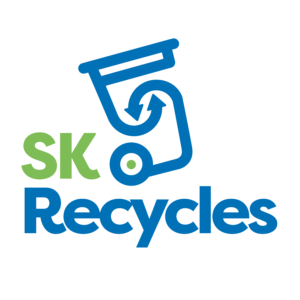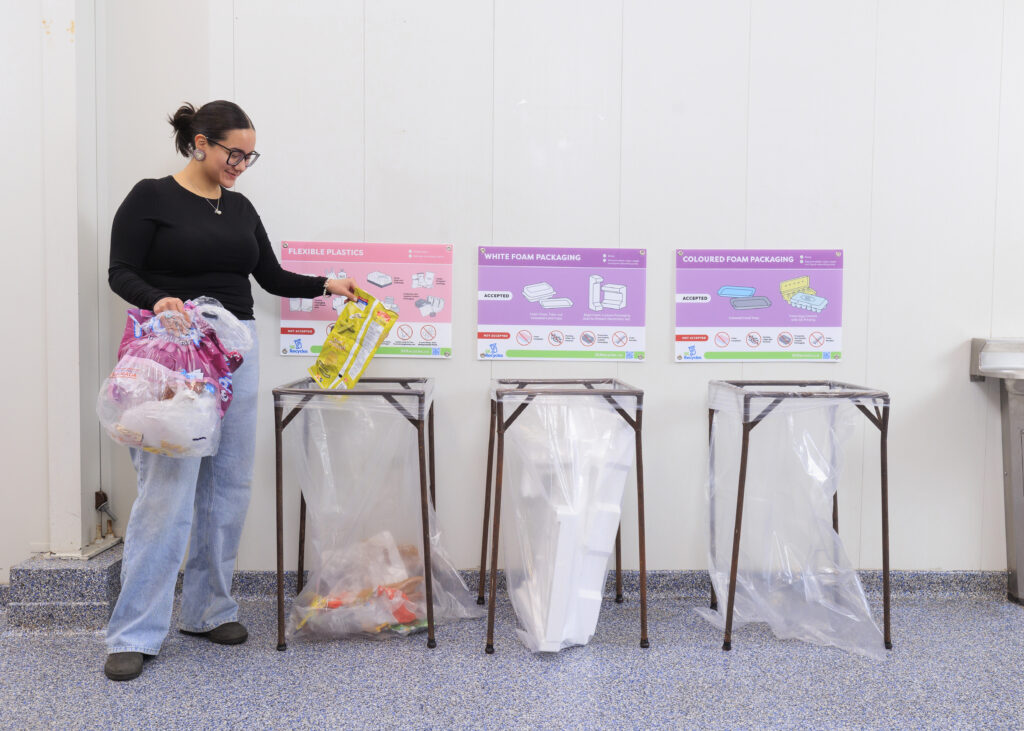There are now more recycling opportunities for Saskatchewan residents. SK Recycles, the new provincial recycling program for packaging and paper, has expanded the materials accepted for recycling. For the first time in the province’s history, flexible plastics and foam packaging will be accepted province wide. SK Recycles has partnered with SARCAN Recycling to collect these new materials at all 73 SARCAN depots in the province. Non-deposit glass bottles and jars will now be accepted at SARCAN depots province-wide too. Most of these items are not accepted in household recycling bins.
“We are very pleased to launch our program and to accept these new items in partnership with SARCAN,” says Sam Baker, Vice President of Operations for SK Recycles. “We’re passionate about supporting household packaging and paper recycling in Saskatchewan and advancing environmental outcomes through this program. We’re here to support, educate, and encourage everyone across the province to recycle more and recycle right, so that we can create a more sustainable future for our province.”
Residents are encouraged to take advantage of this new recycling service and return the following items to their local SARCAN depot:
- Flexible Plastics (plastic bags; stand-up and zipper lock pouches; crinkly wrappers and bags; plastic net bags; plastic protective packaging).
- Foam Packaging (foam take-out containers; foam trays for meat, seafood, or vegetables; foam protective packaging for electronics or appliances).
- Glass Bottles and Jars (bottles and jars for olive oil, pickles, jam, etc.).
A new marketing campaign that uses social, digital and traditional media to let consumers know of the changes to the materials they can take to SARCAN depots was launched December 1.
The change is a result of the provincial Ministry of Environment’s new regulations for the management of household packaging and paper. The regulations call for a full Extended Producer Responsibility (EPR) program where producers of these products, like manufacturers, brand owners, and retailers, are financially and operationally responsible for managing household packaging and paper, from collection to recycling. The approach is similar to that being used in British Columbia, where the program achieves a 79% recovery rate, and 94% of collected materials are managed by recycling.
“This partnership between SK Recycles and SARCAN is a homegrown solution that will benefit our communities and help us achieve our Solid Waste Management Strategy goals,” Environment Minister Travis Keisig said. “By working together, these programs will significantly boost waste diversion across Saskatchewan and help us reach our targets of reducing waste per person by 30 per cent by 2030 and 50 per cent by 2040. This is a big step forward for our province and our environment.”
SARCAN says they are ready and excited to expand the scope of the products they collect. “This expansion will not only help us meet our commitment to build cleaner, greener communities across Saskatchewan, but it also means new green career opportunities for the people of all abilities in our province,” said Amy McNeil, Executive Director for SARC and SARCAN Recycling.
The Saskatchewan Waste Reduction Council is excited for Saskatchewan residents to have new recycling options. “This new program will allow more opportunities to recycle certain types of problematic packaging and keep them out of landfill,” said Joanne Fedyk, Executive Director for the Saskatchewan Waste Reduction Council. “SK Recycles and SARCAN teaming up will be a win for both organizations and, most importantly, a win for Saskatchewan residents. It allows the SK Recycles program to be province-wide and builds on a trusted, well-established depot network.”
This material will be recycled in Saskatchewan and Western Canada where glass will be made into reflective glass beads for road marking paint and fibreglass insulation. Flexible plastics will be made into plastic pellets for manufacturing of new plastic products such as bins and buckets and foam will be prepared to be made into picture frames and crown moulding. SK Recycles is committed to ensuring collected material is managed and recycled responsibly.
SK Recycles, a not-for-profit, evolved from the previous Multi-Material Stewardship Western (MMSW) program which has been operating in the province for eight years. It will manage the full EPR program on behalf of producers and will work with local governments, First Nations and Métis communities, private companies and other organizations during three transition phases that will be implemented over the next three years and once the program has fully transitioned, which is expected to be complete by December 1, 2027.

